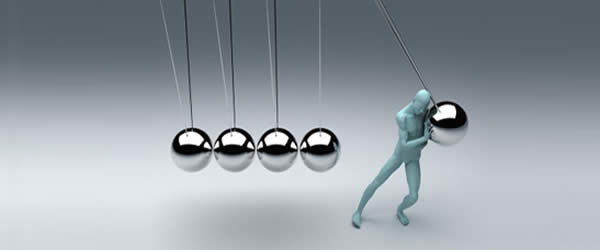ar-ge
Are R & D People Unsocial??
I had shared the importance of research and development issues for companies, its position in the organization, characteristics of the manager etc. in my previous posts. What about the R & D employees?? There is an indisputable realty for companies especially showing size in the technology sector; R & D’s performance draws the fate of the company…R & D employees are in a decisive position for the companies. So what determines the performance of R & D employees??
An overall valid rule: the teams with strong team spirit are at least one step closer to success in business. So, is it the same for R & D?
The term unsocial, as the opposite expression of social is defined as “the one exhibiting non-social human behavior”. Unsocial people are the ones who can not enter or do not prefer to enter into society, thus who don’t give priority to communicate with people. Now we come accros with two questions: are the R & D people unsocial? If yes, should R & D people be social ..?

For companies working in technical fields and doing R & D in the real sense, R & D engineer’s first task is to do research and then to develop with the data they obtained. The research issue is much easier today, thanks to a miraculous tool such as internet. But still, libraries, books, publications, articles and so on are the basis of many sources of research. Research, in this context may be considered as an individual activity. When we come to development, in the new design stage it is possible to work individual, but it is impossible for a development activity to be completed without having contact with the buyers, the testers, the mechanic designers, graphicers etc..! Nevertheless, especially R & D activities that require high concentration and continuous operation, can cause to spend hours or may be days without communicating with environment…and in time, this kind can turn to be a habit or a behavior characteristics. I can briefly say that I often observed this in the teams I used to manage.
The ability to communicate in the workplace, although not a hundred percent applicable rule, is in fact parallel with the ability to communicate in daily life. An R & D person who needs a request from a collegue of his department or another department, considers this as an opportinity to chat or share something if he has a social character. But an R & D person of asocial type thinks many methods to escape from requesting something, and at last tries to finalize the subject by sending just an e-mail instead of having a direct contact.
An R & D person who doesn’t have sharings or doesn’t try to have a place in the community in his business life generally also continue to do so in private life..or vice versa, a person adopted an unsocial life in private, exhibits a behavior that avoids communication in business life. However, work is more enjoyable for R & D people who loves to be in the community, feels pleasure from engaging in social activities with private friends and collegues. I strongly recommend using the business environment to socialize, sometimes of course..! 🙂

It is very clear that it is not mandatory for R & D people to be social like the people working at sales, marketing, public relations, corporate communication…but it is undeniable that sociability provides positive performance for R & D teams targeted the success with team spirit. Anyway, sociability feature which is optional for R & D staff is a standard and mandatory characteristics for R & D managers 🙂
R&D Management
The success of a company’s R & D activities, to a great extent depends on R & D Management. In the article entilted “R & D Organization” I had pointed out that the Top Management is the hidden executive of R & D department as part of the company. For R & D management, the company’s general policy to be followed and the location of R & D in the organization of the company have the greatest impact. But the real impact emerges with R & D department’s own organization.
The Structure of R & D
Numerous alternatives may be considered in configuration of R & D department. Management of research engineers team, management of technical experts and technicians team, management of branch groups, divided management, single-headed management, free style working management etc. can be used as the method of management. Here, naturally the method that is most effective and most likely to the company is expected to be selected. So, the proper method is not sole for management, every company may have a different correct method of management. It is not so practicable to claim that a method used for a university or research institute’s R & D management will also work for a manufacturing company operating in the food industry. But without a shadow of a doubt we have a point, the characteristics of the R & D manager determines the fate of R & D activities…
Who is R & D Manager???
R & D manager, as may be the head of a team of just three members, may also be a director who contains several departments under his management. But for both, target is research and development to be done. The manager’s most important attribute to direct toward this target is the “leadership” character. R & D manager should be a leader, thus should be able to drag along the team. Leadership character, relies on many attributes to be holding on. To be the launcher of the processes, to make coaching at every point needed, to be a role model so as to reflect his expectations and to be a mediator enough as to bring different opinions together, are the most obvious character traits.

The most widely accepted idea for some company’s managers is to select the oldest or the one who does his job best as the R & D manager… Although it works sometimes, this is a wrong and an amateur type of idea which is usually seen in small companies with a symbolic R & D department. Assigning an employee as the R&D manager just because he is the oldest, technically knows best or does his job well, but far away from leadership characteristics, will lead the R&D department to inefficiencies and chaos;
This amateur step leads the department to inefficiency because a good researcher is lost.. moreover got dull by loading him with administrative duties and made busy. This step leads to a chaos because the R&D manager may insist on a fault that he thinks to be correct…apart from the mediator and analyst role appraised to him, he becomes the source of the conflict in the R&D team. He may become closed to any kind of technical or social idea from the team members with an approach as “I know best the technical truth, the authority is on me“. This causes among the team members to more widely accept the lacking leadership qualities of the manager, thus the weakness.
However, what is expected from R & D manager is just directing his team as a leader… Knowing the business can bring a plus in terms of operation, but it is certainly not a requirement. A good R & D manager, namely leader, can manage successfully both a textile design team or the team that develop electronic technology. A leader R & D manager can also manage succesfully a researcher who is an expert in his business and more experienced than his manager. Not only for R & D, but in general, departments managed by a “leader” show higher performance. The subordinates who do not belive in leadership of their manager, will go on their own way at every opportunity they find…

Establishing and continuously strengthening the team spirit increases the power of R & D managers. In this regard, the most important ideas that the R&D manager inoculates to his team should be: engineers, technicians, experts and titles so on are in opeartion just pointing out the links of the chain, to have the chain strong it had to be the team strong, the teams need to be established by possibly different job titles as rings of tightly connected together. This not only increases employee motivation, but also change the employee’s perspective, increases the sense of ownership.
Although the management style to be used can vary according to the company policy, R & D team and the sector worked in, on the basis, R & D is a matter of “project management” of specific rules. The R & D manager following a systematic process for source, time, budget and other parameters is the key to the success no matter which sector he is in. Planning, advanced targeting, but judicious estimates, in commercial terms is one of the ways that will lead to success.
In general we can say that R & D management is; not limited with sharp criteria, but a leader manager, a team with team spirit and the organization with freedom in discipline…




